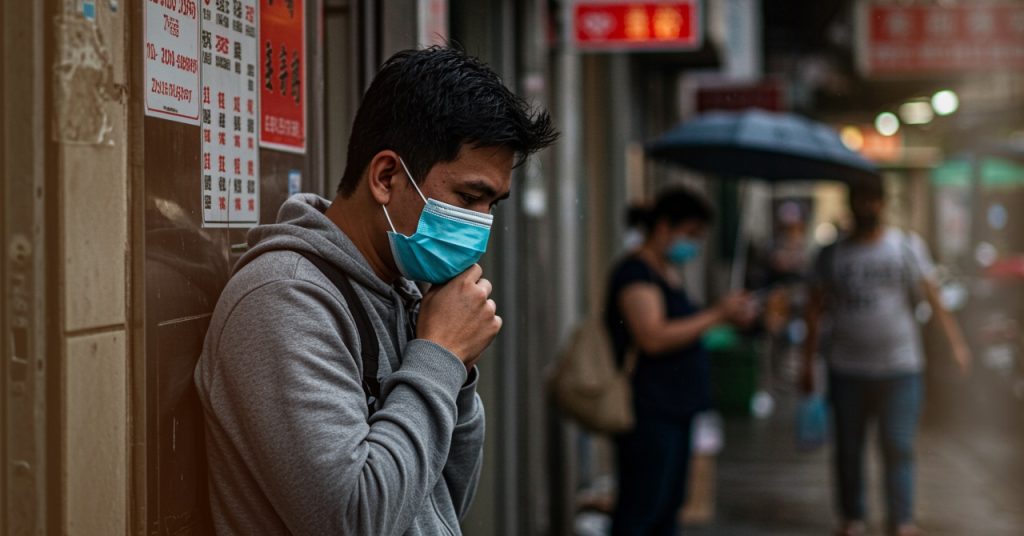When you’re working abroad, staying healthy isn’t just a personal goal—it’s a lifeline. In Taiwan, the healthcare system is known for being one of the best in the world. As an OFW, understanding how this system works can help you stay well, avoid unnecessary costs, and access the care you need when you need it.
Whether it’s a visit to the clinic, a sudden illness, or your daily wellness routine, here’s how you can take charge of your health while working in Taiwan.

Health Insurance in Taiwan: What OFWs Need to Know
Taiwan operates under a single-payer healthcare system called the National Health Insurance (NHI). It’s mandatory for all legal residents—including OFWs with valid employment contracts and Alien Resident Certificates (ARC).
Here’s how you can get covered:
How to Enroll in NHI as an OFW
- Start with Legal Employment
Your employer is responsible for enrolling you in the NHI program. This usually begins on your first official day of work. - Submit Required Documents
Your employer may ask for:- A copy of your ARC
- Valid passport and work permit
- Your signed employment contract
- Wait for Your NHI Card
Once enrolled, you’ll receive a National Health Insurance card—this is what you’ll present at clinics or hospitals. - Paying Your Premiums
The insurance premium is about 4.69% of your salary, but your employer covers a large share. You’ll only pay around 30% of that amount, which is automatically deducted from your paycheck. - Maintain Your Coverage
As long as your job is active and your ARC is valid, you remain covered. If you switch jobs or become unemployed, your NHI status will need to be updated.
Where to Get Medical Help: Clinics, Hospitals, and Traditional Medicine
Most clinics and hospitals in Taiwan accept NHI, which keeps your out-of-pocket costs low. A typical visit costs NT$150, and this often includes medication.
Here are some tips to navigate the system:
- Walk-in Clinics Are Your First Stop
For minor illnesses, go to a neighborhood clinic. It’s faster than heading to a hospital. - Hospitals Are for Specialized or Serious Conditions
You might have to wait longer, but you’ll find specialists and more advanced diagnostic tools. - Check Clinic Hours
Most facilities are open Monday to Saturday, but many close for a 2-hour lunch break around noon. - Use Your NHI Card for Acupuncture and TCM
Yes—Traditional Chinese Medicine is covered! Acupuncture, herbal remedies, and other treatments can be accessed through certified clinics under NHI.
Everyday Health Habits While Living in Taiwan
Even with world-class healthcare, prevention is still better than cure. Here are a few wellness tips based on life here:
- Hydrate and Eat Balanced Meals
Taiwan’s humid climate means you’ll need more fluids. Convenience stores offer healthy options like fruits, eggs, and bento boxes. - Get Regular Check-Ups
NHI covers preventive care like physical exams and basic screenings. Don’t wait for symptoms—stay ahead. - Wear a Mask During Flu Season
Locals wear masks regularly—not just during a pandemic. It’s a smart way to avoid seasonal illnesses, especially in crowded areas. - Sleep, Exercise, and Sunlight
Take advantage of Taiwan’s parks and walking paths. A simple 30-minute walk can improve your mood, reduce stress, and boost immunity.
Common Limitations and Workarounds
Even a great healthcare system has its gaps. Here’s what to expect:
- Eyeglasses Not Covered
You’ll need to pay out-of-pocket for eyewear, though some optical shops offer free eye exams. - Limited Access in Remote Areas
If you live far from city centers, telemedicine and mobile healthcare units are available in some regions. - Language Barrier
Not all healthcare workers speak English or Filipino. Consider using translation apps or asking a friend to come with you.
Government Support Beyond NHI
You’re not alone. The Philippine government also has your back while you’re abroad:
- OWWA Membership Benefits
If you’re a registered OWWA member, you may qualify for:- Medical assistance in case of emergencies
- Repatriation support
- Welfare programs for dependents back home
- MWO Services in Taiwan
The Migrant Workers Office (MWO) in Taipei offers:- Legal advice and dispute mediation
- Financial and emotional counseling
- Assistance with workplace grievances
Frequently Asked Questions (FAQs)
Do I need to apply for NHI myself as an OFW?
No. Your employer is responsible for enrolling you in NHI when your job starts. Make sure you provide the necessary documents.
Is my NHI card valid everywhere in Taiwan?
Mostly, yes. Hospitals and most clinics accept it—but private or boutique clinics may not. Always check before you visit.
Final Thoughts
Living and working in a new country comes with its share of challenges—but your health doesn’t have to be one of them. Taiwan offers some of the best healthcare services in Asia, and as an OFW, you have access to that system. From affordable insurance coverage to accessible clinics and wellness practices that fit into daily life, you’re not navigating this alone.
Take the time to understand your benefits, make use of what’s available, and don’t wait for a health issue to remind you how important self-care is. Staying healthy isn’t just about avoiding sickness—it’s about showing up fully for your work, your family, and yourself.
Your body is your greatest investment while working abroad. Protect it. Listen to it. And make sure it gets the care it deserves.
